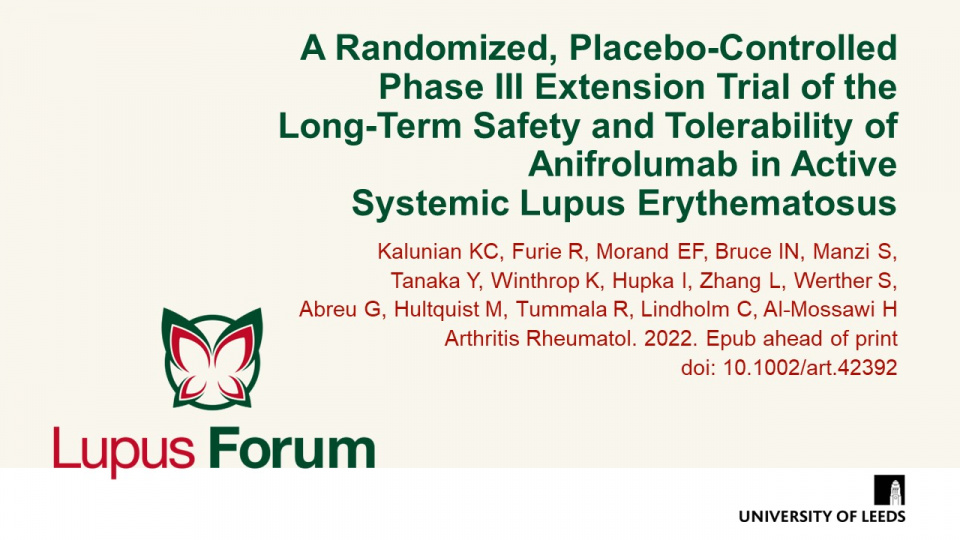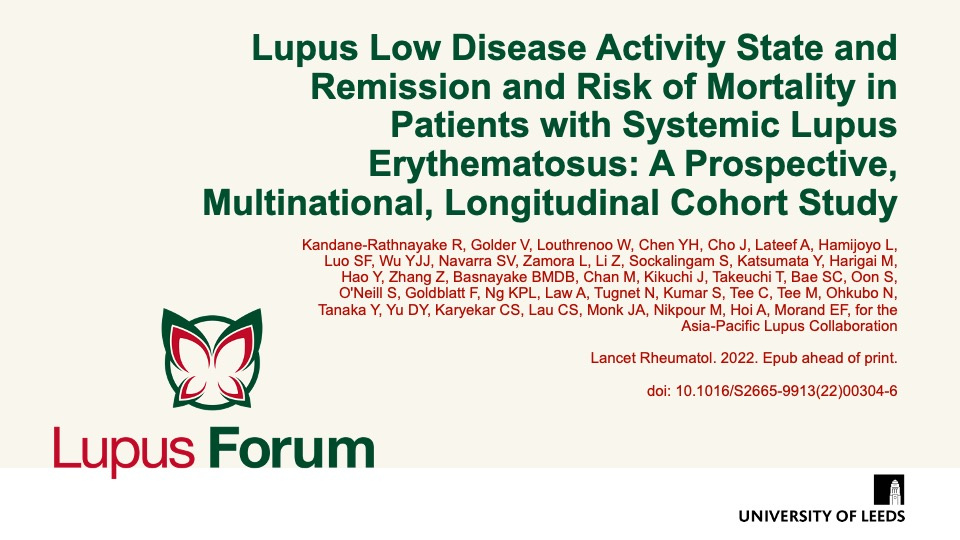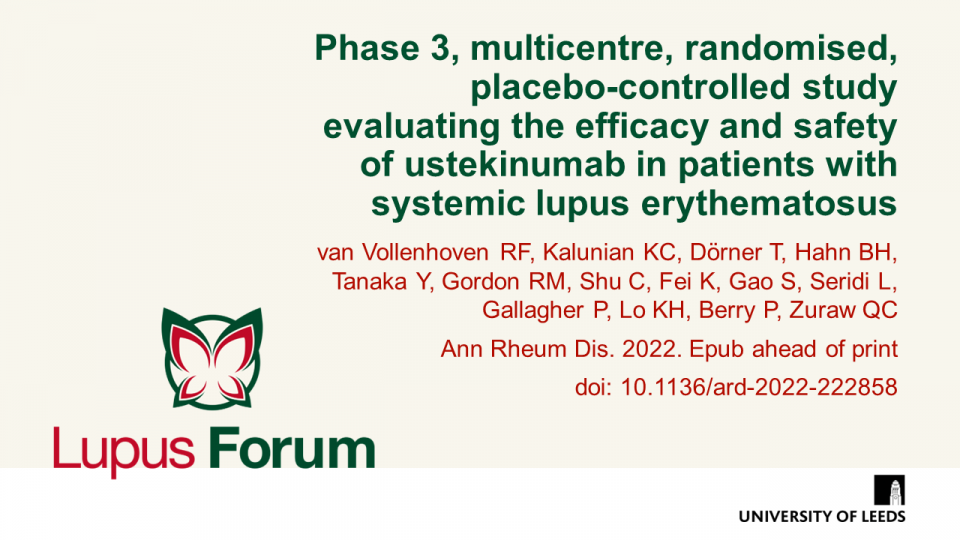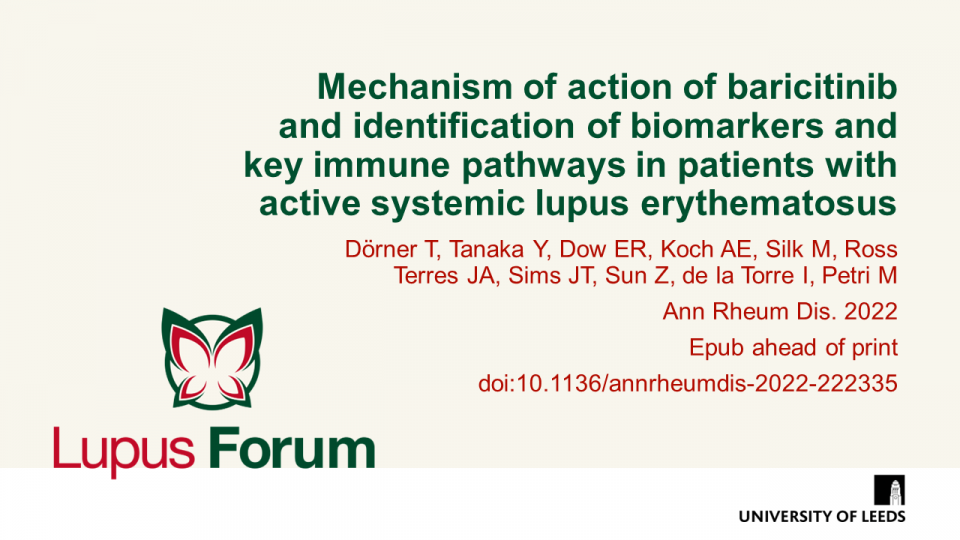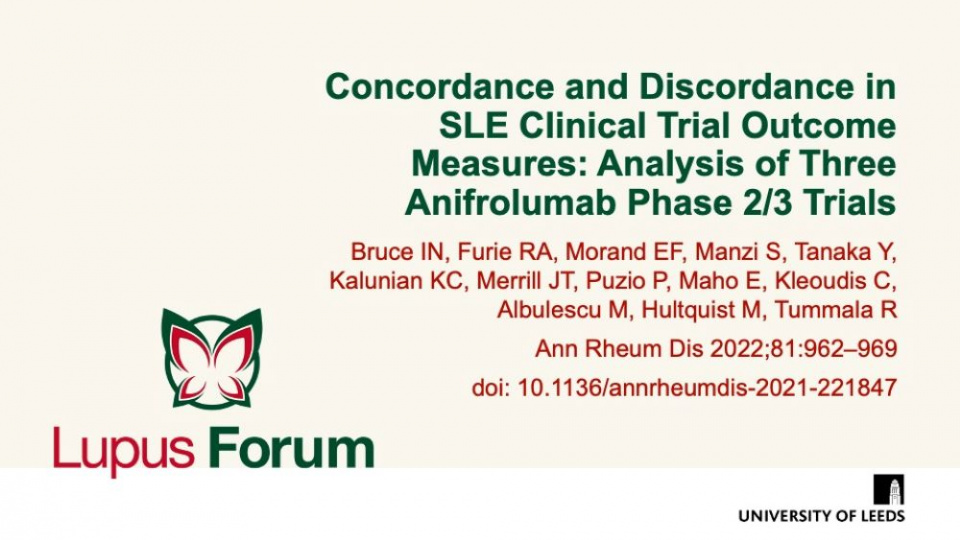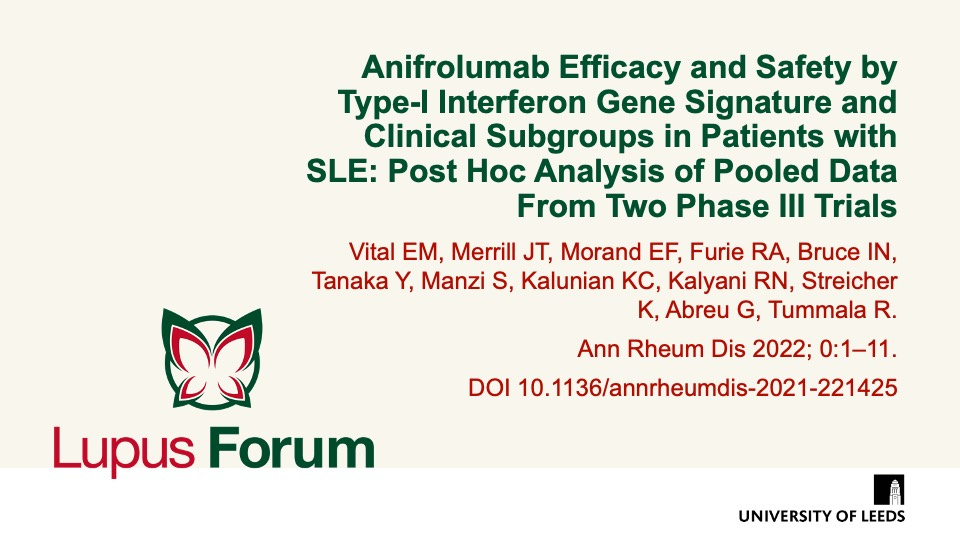Publications
Find coverage of the latest original articles on Lupus, focusing on those with data on therapeutic interventions and those that have clinical impact.
This activity is supported by an educational grant from AstraZeneca.
A Randomized, Placebo-Controlled Phase III Extension Trial of the Long-Term Safety and Tolerability of Anifrolumab in Active Systemic Lupus Erythematosus
Arthritis Rheumatol. 2022. Epub ahead of print doi: 10.1002/art.42392
Long-term extension study shows an acceptable long-term safety profile of anifrolumab in SLE, in addition to sustained improvements in disease activity and reduction in glucocorticoid use.
Lupus Low Disease Activity State and Remission and Risk of Mortality in Patients with Systemic Lupus Erythematosus: A Prospective, Multinational, Longitudinal Cohort Study
Lancet Rheumatol. 2022. Epub ahead of print. doi: 10.1016/S2665-9913(22)00304-6
Lupus low disease activity state (LLDAS) significantly reduced the risk of mortality in patients with SLE.
Keywords:
Phase 3, multicentre, randomised, placebo-controlled study evaluating the efficacy and safety of ustekinumab in patients with systemic lupus erythematosus
van Vollenhoven RF, et al. Ann Rheum Dis. 2022. Epub ahead of print. doi:10.1136/ard-2022-222858.
Phase 3 study evaluating the efficacy and safety of ustekinumab in patients with active SLE, despite receiving standard-of-care, does not achieve primary and key secondary endpoints.
Mechanism of action of baricitinib and identification of biomarkers and key immune pathways in patients with active systemic lupus erythematosus
Dörner T, et al. Ann Rheum Dis. 2022. Epub ahead of print. doi:10.1136/annrheumdis-2022-222335.
Phase II study results suggest that baricitinib 4 mg downregulates key cytokines that are upregulated in patients with SLE.
Concordance and discordance in SLE clinical trial outcome measures: analysis of three anifrolumab phase 2/3 trials
Ann Rheum Dis 2022;81:962–969 doi: 10.1136/annrheumdis-2021-221847
Bruce, et al. investigate the degree of concordance between BICLA and SRI-4 response across anifrolumab trials (TULIP-1, TULIP-2 and MUSE) in order to better understand drivers of discrepant systemic lupus erythematosus (SLE) trial results.
Anifrolumab efficacy and safety by type I interferon gene signature and clinical subgroups in patients with SLE: post hoc analysis of pooled data from two phase III trials
Ann Rheum Dis. 2022; 0:1–11. doi: 10.1136/annrheumdis-2021-221425
IFN-I signalling plays a key role in SLE pathogenesis, and anifrolumab has demonstrated inhibitory effects on IFN-I signalling in patients with SLE. Vital, et al. characterised efficacy and safety of anifrolumab in patients with moderate-to-severe SLE based on interferon gene signature, demographic and clinical subgroups using data pooled from the Phase III TULIP-1 and -2 trials.


